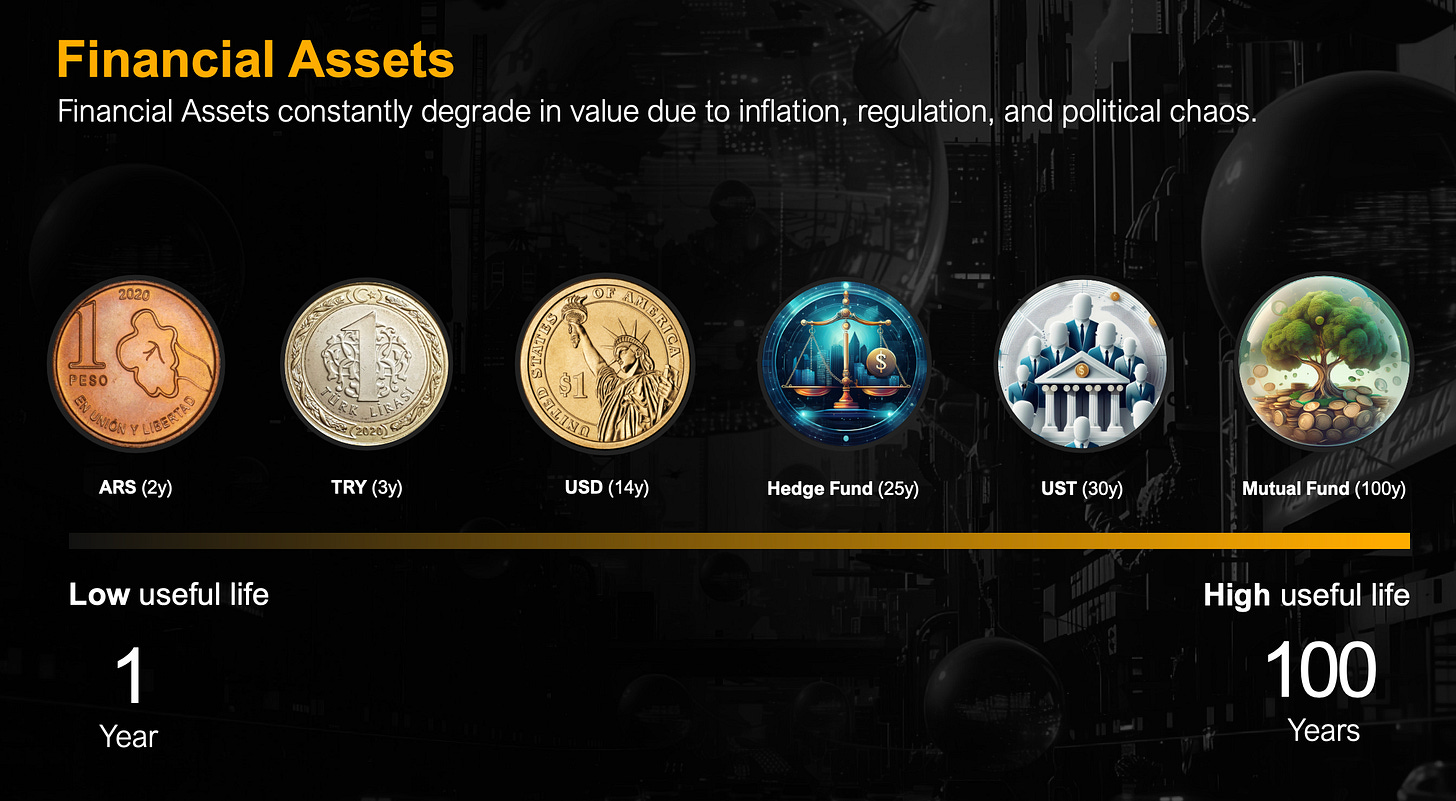Why You’re Working Harder and Earning Less Every Year
The Coming Financial Divide: Will You Be Free or a Slave?
If You Earn Money, You Pay Taxes—Approximately 50%
If you buy a product, you pay taxes—depending on the country, this ranges from 10% to 25%.
If you have wealth, you pay a wealth tax.
If you die, you pay inheritance taxes.
If you keep your money in savings, you pay the "inflation tax."
We live in a system designed to keep us poor. Why? Because the moment you lose your ability to purchase goods and drop in status, you become just another member of the herd.
In fact, although it might not seem obvious, the worst of all these taxes is the last one: inflation. It’s the tax that allows a select few to grow immensely rich while forcing you to work harder and harder just to afford the same resources.
If you don’t believe me, take a look at this eye-opening statistic:
Since 1971, the S&P 500 has grown 22 times faster than the average hourly wage of any worker.
Had wages grown at the same rate, the average hourly salary today would be $600. Assuming a consistent savings rate of 20% per month, for example, if in 1971 you could buy one share of the S&P 500 with your savings, today you could only afford 0.045 shares.
As most of us already know, the only way to sustain this system is by taking on more debt to pay off interest—and keeping the music playing for as long as possible.
“What happens if there’s a global reset and major economies default?” As my grandmother used to say—she didn’t know much about finance—"if the sky falls, it’ll land on all of us."
When we combine all these variables, I believe governments will continue raising taxes to collect more revenue while printing even more money. This will exacerbate inequality until it reaches a breaking point under a government different from the current one.
What Can You Truly Own?
From my perspective, there are very few things we can truly own. However, two stand out: gold and Bitcoin.
Returning to how this article began, I believe these two assets make sense not just because they are finite and belong entirely to you but also because they are exempt from many of the taxes previously mentioned.
When it comes to maintenance costs, if you’re the one holding your gold or Bitcoin, those costs are effectively zero. Similarly:
No wealth tax applies.
No inheritance tax applies.
Inflation actually works in your favor with these assets.
Notice that I didn’t include real estate among things you can truly own. That’s because real estate is immovable—it’s subject to the laws of the territory where it’s located. Additionally, owning multiple properties without a steady cash flow works against you because:
You pay property taxes simply for owning them.
You incur maintenance costs.
They depreciate over time.
Stocks are also excluded since they are tied to company performance and subject to all the taxes we’ve discussed earlier.
The Case for Gold and Bitcoin
At last year’s conference in Nashville, Michael Saylor used parameters such as inflation and maintenance costs to calculate how long various financial assets take to lose their value. He created an interesting scale worth examining:
For example, Argentina’s peso loses its purchasing power in just two years.
Indexed funds take longer due to management fees and regulatory costs.
Of course, investment funds come with additional risks worth considering:
Management fees can erode returns over time.
Regulatory changes may impact fund performance.
Inflation still diminishes purchasing power.
The Rat Race Is Accelerating
As time goes on, I believe we’ll exchange more time for less money—leading to less security and freedom. We’ll be like mice running faster and faster until we can no longer keep up.
This is why I’m so focused on reducing taxes, achieving real ownership over my assets, and staying ahead of a system that seems rigged against us.
I firmly believe that with proper capital management and an understanding of how this game works from within, you can achieve financial freedom in just ten years.
You simply need to minimize risks and learn how everything operates behind the scenes—because every day that passes, your labor is worth less.
The Future Divides Us Into Two Groups
Soon enough, there will only be two types of people: those who own assets and are free—and those who must work tirelessly just to eat. Forget about owning a home; that’s already nearly impossible today and will only become more so in the future.
Now let’s move on to our portfolio.







